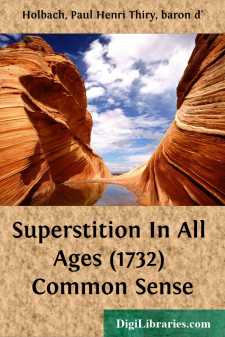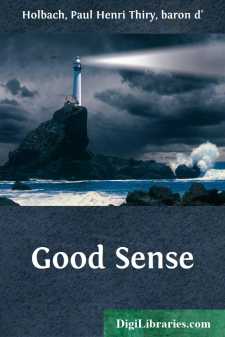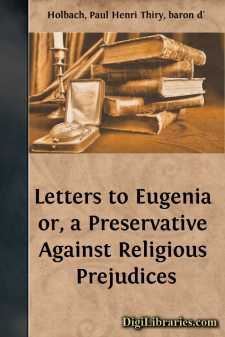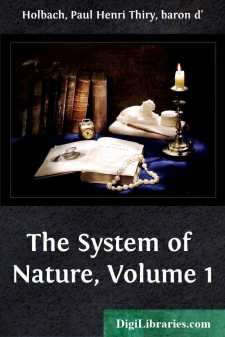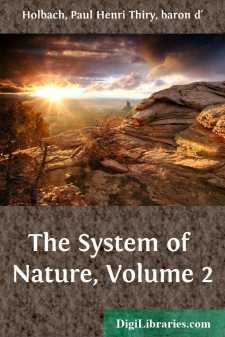Categories
- Antiques & Collectibles 13
- Architecture 36
- Art 48
- Bibles 22
- Biography & Autobiography 813
- Body, Mind & Spirit 142
- Business & Economics 28
- Children's Books 16
- Children's Fiction 13
- Computers 4
- Cooking 94
- Crafts & Hobbies 4
- Drama 346
- Education 46
- Family & Relationships 57
- Fiction 11829
- Games 19
- Gardening 17
- Health & Fitness 34
- History 1377
- House & Home 1
- Humor 147
- Juvenile Fiction 1873
- Juvenile Nonfiction 202
- Language Arts & Disciplines 88
- Law 16
- Literary Collections 686
- Literary Criticism 179
- Mathematics 13
- Medical 41
- Music 40
- Nature 179
- Non-Classifiable 1768
- Performing Arts 7
- Periodicals 1453
- Philosophy 64
- Photography 2
- Poetry 896
- Political Science 203
- Psychology 42
- Reference 154
- Religion 513
- Science 126
- Self-Help 84
- Social Science 81
- Sports & Recreation 34
- Study Aids 3
- Technology & Engineering 59
- Transportation 23
- Travel 463
- True Crime 29
Paul Henri Thiry Holbach
Paul Henri Thiry Holbach (1723–1789) was a French-German philosopher, writer, and prominent figure of the Enlightenment known for his staunch atheism and materialism. He authored "The System of Nature", a seminal work that argued against religious belief and promoted a naturalistic worldview, positing that the universe operates on physical laws without divine intervention. Holbach was also an influential salon host in Paris, where he gathered intellectuals to discuss ideas on science, philosophy, and politics.
Author's Books:
Sort by:
I.—APOLOGUE. There is a vast empire governed by a monarch, whose conduct does but confound the minds of his subjects. He desires to be known, loved, respected, and obeyed, but he never shows himself; everything tends to make uncertain the notions which we are able to form about him. The people subjected to his power have only such ideas of the character and the laws of their invisible sovereign as...
more...
When we examine the opinions of men, we find that nothing is more uncommon, than common sense; or, in other words, they lack judgment to discover plain truths, or to reject absurdities, and palpable contradictions. We have an example of this in Theology, a system revered in all countries by a great number of men; an object regarded by them as most important, and indispensable to happiness. An...
more...
For many years this work has been known under the title of Letters to Eugenia. The secretive character of those, however, into whose hands the manuscript at first fell; the singular and yet actual pleasure that is caused generally enough in the minds of all men by the exclusive possession of any object whatever; that kind of torpor, servitude, and terror in which the tyrannical power of the priests...
more...
INTRODUCTION Paul Henri Thiery, Baron d'Holbach (1723-1789), was the center of the radical wing of the philosophes. He was friend, host, and patron to a wide circle that included Diderot, D'Alembert, Helvetius, and Hume. Holbach wrote, translated, edited, and issued a stream of books and pamphlets, often under other names, that has made him the despair of bibliographers but has connected his...
more...
CHAP. I. The Origin of Man's Ideas upon the Divinity. If man possessed the courage, if he had the requisite industry to recur to the source of those opinions which are most deeply engraven on his brain; if he rendered to himself a faithful account of the reasons which make him hold these opinions as sacred; if he coolly examined the basis of his hopes, the foundation of his fears, he would find...
more...


